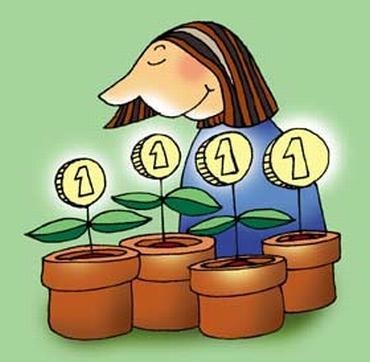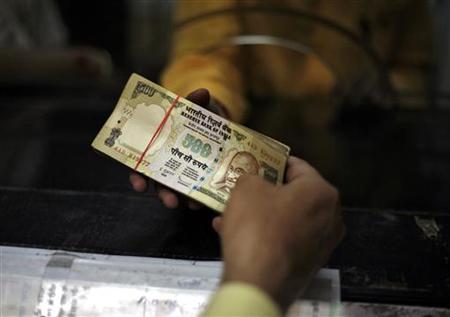
There are no pension plans in the market right now. Yes, draft guidelines on pension products are out and companies have started filing for these products with the regulator, but no product has been approved as yet.
In spite of that, you may have received push message(s) for products that could pay pension. One such message received by yours truly read: "Get pension of Rs 50,000 per month for life and Rs 1 crore for your family by investing only Rs 5,000 every month. To know more, SMS XYZ to 4567. Terms and conditions apply."
Such messages can be very tempting at the sight of the magical figure Rs 1 crore (Rs 10 million). But, it isn't really that good.
...

When Business Standard responded to the above mentioned text message, the salesperson (from a leading aggregator) said the plan was Birla SunLife Insurance's Vision. This product isn't a pension plan according to the company's website.
It is a guaranteed traditional investment plan. The salesperson assured the product will give a monthly pension of Rs 50,000 and a guarantee of Rs 1 crore (Rs 10 million).
According to the salesperson's pitch, the product will give an annualised return of 25 per cent (for a 45-year-old) and 12 per cent (for a 35-year-old).
However, according to financial planners, this projection is too good to be true in the case of an insurance product.
...

Agreed that Rs 1 crore (Rs 10 million) is a lot of money. And, you may believe it can take care of all of your and your family's needs. As of today, may be. But, if you are to retire after 10 years or more, this may not be true.
Say, you are 45. Assuming you will retire at the age of 60, that would be 15 years later. Let's say the rate of inflation will stay at 7 per cent through these years. When you turn 60, the value of Rs 1 crore (Rs 10 million) would come down to Rs 36.24 lakh (Rs 3.62 million). If the inflation rate were to increase to 10 per cent or more in these years, the value would go down further.
The monthly pension of Rs 50,000 will also not be equal to Rs 50,000. At retirement, Rs 50,000 will be equal to Rs 9,212 for a 35-year-old and Rs 18,122 a month for a 45-year-old.
...

You might think it would make sense to buy these products for someone retiring anytime in the next five years. However, that won't be possible. According to the salesperson, you need to stay invested in the product for at least 15 years to get the pension benefits and the assured Rs 1 crore (Rs 10 million).
Here's more. At the rate of Rs 4,000 a month, you will invest Rs 48,000 a year for 35 years, that is, Rs 16.80 lakh (Rs 1.68 million). This will be the life cover.
Only if you stay invested all through the term will you get the guaranteed amount of Rs 1 crore (Rs 10 million). The 35-year term can even be brought down to 21 years by increasing the per-month payout.
If you are not convinced about the product, the salesperson would say, buy it on behalf of your son or daughter. Otherwise, the salesperson has another option, where you can get a pension of Rs 8,000 a month after the term, if you pay Rs 4,000 for 15 years.
...

...

Suppose a 35-year-old and a 45-year-old have monthly household expenses of Rs 20,000 each. Assuming both would live till the age of 80 years and the rate of inflation would stay at 7 per cent. The amount of Rs 20,000 will be equal to Rs 100,000 in the case of the 35-year old and Rs 55,000 for the 45-year-old.
Even at a conservative rate of return of 8 per cent, the retirement corpus these individuals need is Rs 23.78 crore (Rs 237.8 million) and Rs 12.08 crore (Rs 120.8 million)) for the 35-year-old and the 45-year-old, respectively. And, to create this kind of a corpus, both individuals will have to invest close to Rs 14,000 a month and Rs 25,500, respectively.
Financial planners are not in favour of accumulating retirement corpus through pension products or insurance plans. The main reason is the low rate of returns (compared to other instruments) and high cost associated with these products. The regulator has tried to make the product more policyholder-friendly, but it continues to be more expensive than other competing ones.
...

Certified financial planner Arnav Pandya had earlier told Business Standard that pension products were not the best option to save for retirement. "Equity mutual funds, preferably the diversified ones, could deliver much better annualised returns of 12-15 per cent over a period of 20-25 years," he had said. As for a life cover, you could make do with a pure life insurance, which would come much cheaper and serve the purpose better.
Investment-cum-insurance products on the traditional platform invest heavily in debt papers, stifling the growth prospects of your money. On a good day, you might get up to 7 per cent, but mostly it is between 5.5 per cent and 6 per cent. Even the unit-linked plans with equity fund option, experts say, give only up to 8 per cent a year.